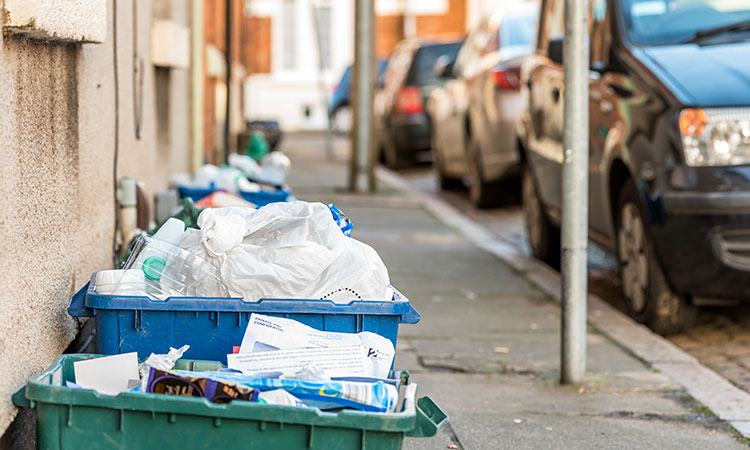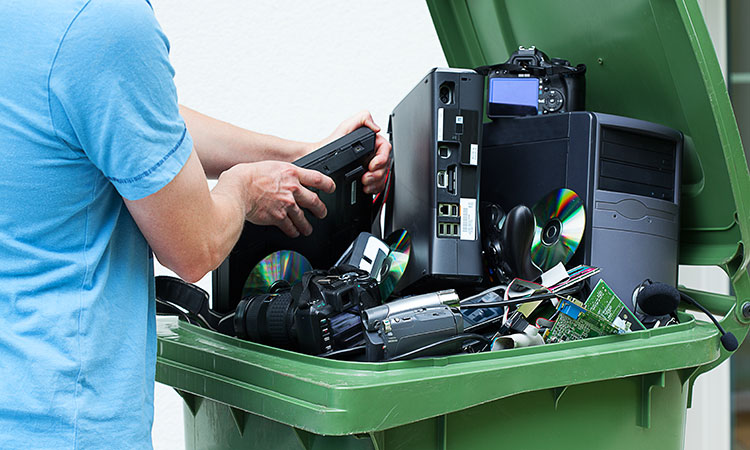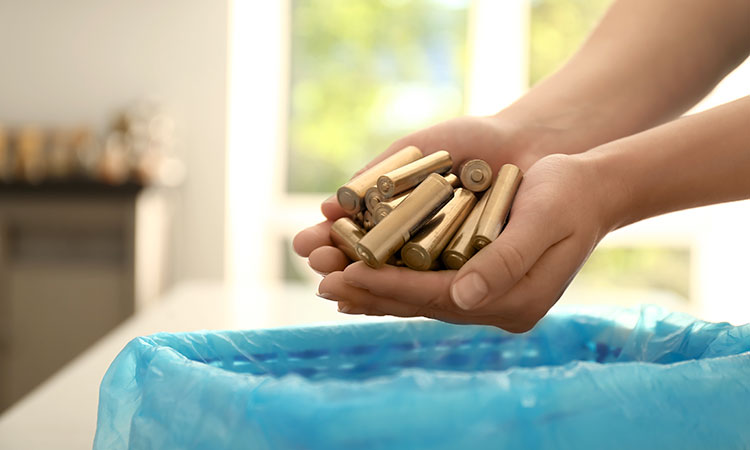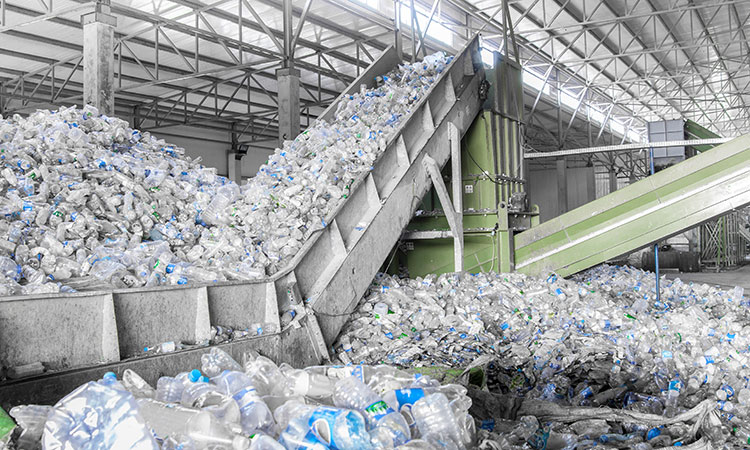In the middle of March, which seems like a lifetime ago, I wrote about the likely impacts of COVID-19 on producer responsibility.
Predictions were difficult to make at the time as it was before the UK went into Government advised lockdown. We were only thinking about better hand hygiene, and not the widespread business closures and “stay at home” culture that has ensued.
The government have been unprecedently swift in releasing their suite of general support for businesses. However, it has taken a little more time to assess the situation and release guidance to specific industries. Producer responsibility is intrinsically linked with waste management and the collection of material to recycle. Now we are a few weeks in, we have started to see the effects on these activities.
Human health a priority
The government recently released recommendations to help local authorities and other collectors prioritise waste collections. The guidance highlights that the risk to short-term human health must ultimately take precedent over longer term resource and climate management.
The highest priority is given to “black bag” mixed general waste, destined to be burned, or worse, landfilled. On the upside, separate food waste collections also received the highest priority, which shows how important it is for us all to segregate our food waste from unrecyclable rubbish at home.
Concern about packaging recycling
The news was not so positive for “dry recyclables” that make up the majority of consumer packaging waste recycled in the UK. Fortnightly collections are only a medium priority, and weekly collections are a low priority.
This effectively means that if local authorities must make a tough call about what services to reduce if staffing numbers become an issue, it is likely that the collection of recyclable material will be adapted or suspended. It is highly probably that this could lead to recyclable packaging material ending up in the general waste bin at people’s homes.

In parallel with the guidance being formulated, some industry associations have made a plea to the government for councils to continue to keep recycling collections services going.
The government’s advice on Household Waste Recycling Facilities, or “the tip” as it is sometimes colloquially known, spells further problems for recycling. Many facilities across the country have been closed by local authorities. Closures followed an upsurge in citizens clearing their homes and gardens in order to have the space to isolate themselves. It is also worth noting that now is usually one of the busiest times for these facilities as spring cleaning commences across the country.
Specifically, reprocessors of packaging waste streams like wood rely on these sites for the collection of material. Their closure could have an impact in the amount of material being collected over the next few months. While there is likely to be some sort of “bounce-back” for wood, as individuals and businesses store it until the sites reopen, this is less likely for card and glass where there will again be temptation to utilise the general waste bin.
However, the guidance is not statutory so local authorities and waste collectors can make their own decisions about the importance of the various services they provide. Knowing how hard many local authorities have tried in recent years to increase their recycling rates, they will be extremely reluctant to switch off services unless imperative.
Lower compliance concern for WEEE
Collections of electrical equipment will also be impacted by the closure of bring sites and recycling centres. However, the government have already made a producer responsibility intervention by reducing the 2020 collection target from their draft position. This makes the targets somewhat more achievable and even if they are not met, there is a compliance fee the government can use to ensure producers contribute towards increase collections and recycling in future.

Although compliance with the law is less of a concern, the outlook is grimmer for treatment facilities who rely on waste electronics to be collected and sent to them for treatment as their primary source of income.
The government’s assistance with paying wages of staff, if they need to be furloughed, will help but there are other overhead exposures that may impact the viability of their operations. WEEE schemes have proposed to use funds derived from the compliance fee in previous years to assist, but a final decision is yet to be made on the detail of how such a system could work.
Problems for batteries
Retailer and recycling centre closures have certainly affected the ease with which the average person can recycle their batteries. As anticipated, requests for collections have reduced.

However, it remains to be seen whether there will be a reduction in batteries collected and recycled in 2020 until the other side of the crisis. It is possible that batteries could be stored at homes and businesses during this period and deposits of batteries could even spike when movement restrictions are relaxed or removed.
Reprocessors
The status of those working in treatment facilities as “key workers” may only relate to those who require childcare cover, but it still sits in stark contrast to the other recommendations being made by government. It will undoubtedly be helping with maintaining staffing levels but if the material isn’t arriving, there is very little they will be able to do.

A statement issued by regulators to relax storage limits for permitted sites will help smooth out any peaks that may occur due to staff shortages or in influx of household material as a result of everyone staying at home. It will be some relief that they will not fall foul of the law due to the unpredictable nature of when material arrives.
Business as usual?
Waste collections are far from “business as usual” as most local authorities are in emergency planning mode. The producer responsibility sector, however, continues to operate in a relatively normal vein, albeit from various homes around the country. Data services to track packaging and products placed onto the market can easily be done remotely with existing weight data. The securing of evidence to meet producers’ obligations continues in earnest.
The only question mark is whether the recycling targets set for 2020 across packaging, WEEE and batteries will be met. If they aren’t met for packaging and batteries, the government will be left with a difficult decision to make. Balancing the need to be fair to those producers and schemes who have gone to extraordinary efforts to meet their obligations, with not wanting to penalise too harshly those who’ve had a difficult year and missed targets, will not be an easy task.
If you have any concerns about your producer responsibility obligations in relation to the COVID-19 crisis, please contact our team.

Robbie Staniforth
Innovation and Policy Director
Robbie is innovation and policy director at Ecosurety. Having spent years building an intimate understanding of the industry’s policies and politics, he uses this knowledge to help shape new legislation and oversees Ecosurety’s growing portfolio of cross-industry innovation projects including Podback and the Flexible Plastic Fund. He has worked closely with Defra during the most recent packaging consultations, outlining the impacts and required transitional arrangements of the UK’s new EPR system and is a member of the government’s Advisory Committee on Packaging (ACP). He is also a spokesperson for the company and regularly uses his influence to communicate the importance of environmental responsibility to external stakeholders.

Latest News

Q2 2024 recycling data shows strong performance in H1
By Sam Marshall 24 Jul 2024
Ecosurety continue to step up for refill and reuse
By Victoria Baker 24 Jun 2024
Ecosurety renews B Corp™ certification with flying colours
By Louise Shellard 11 Jun 2024
Ecosurety sponsor the 2024 Carbon Literate Organisation Awards
By Louise Shellard 07 Jun 2024
